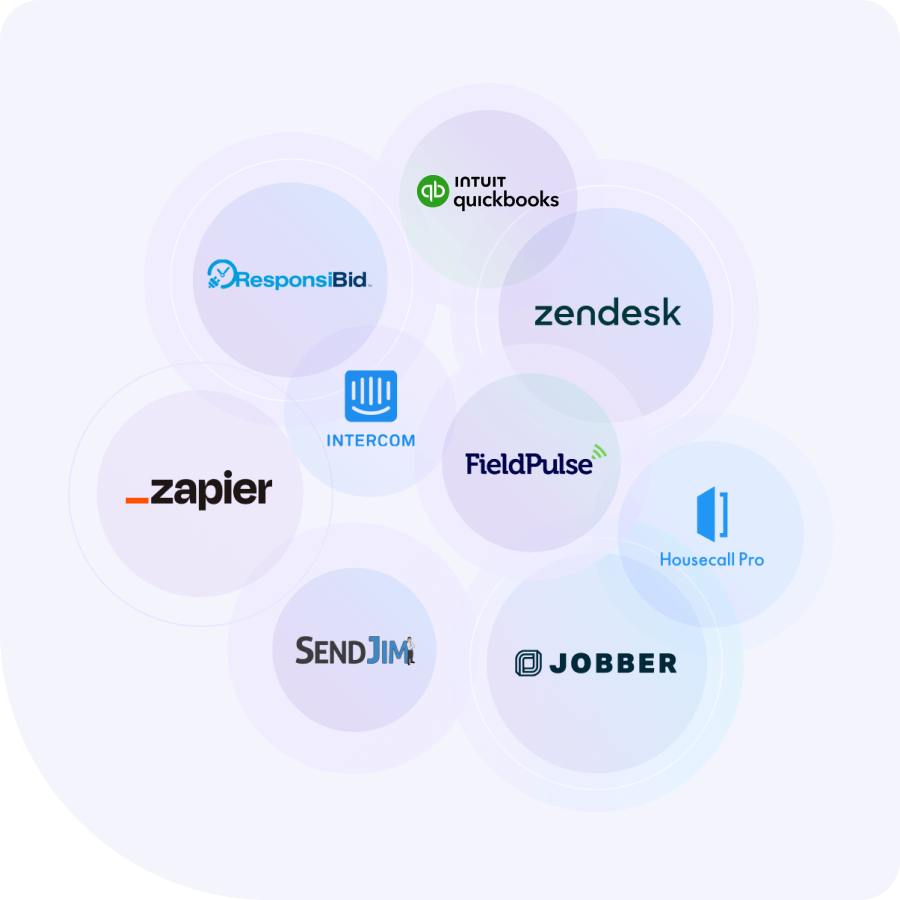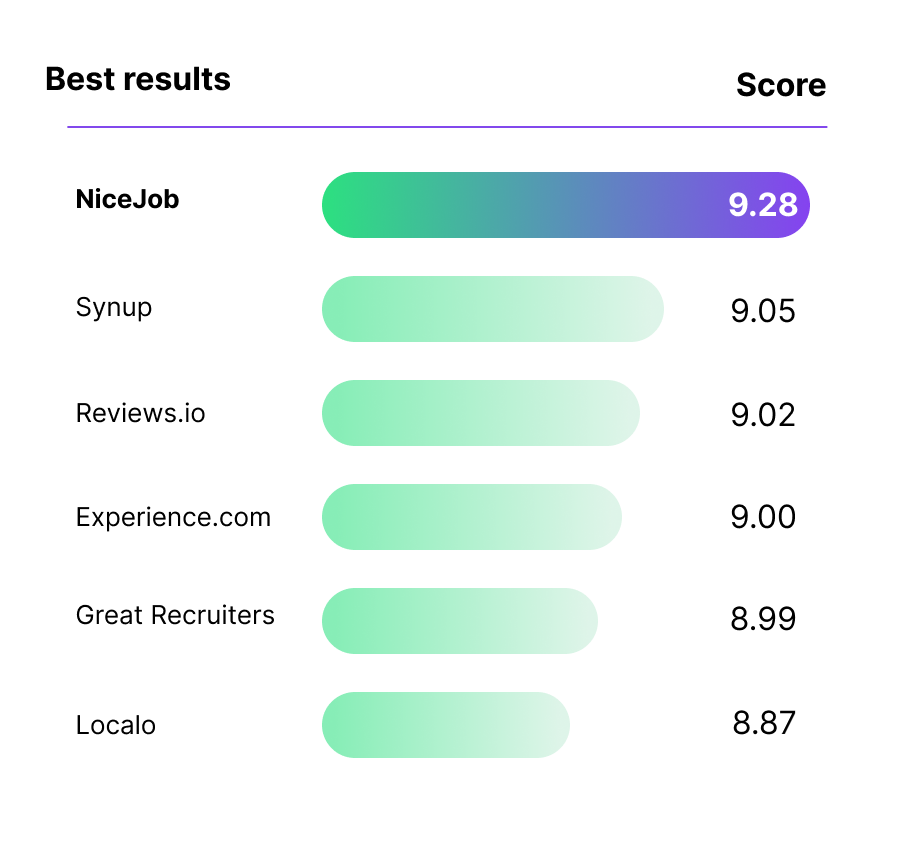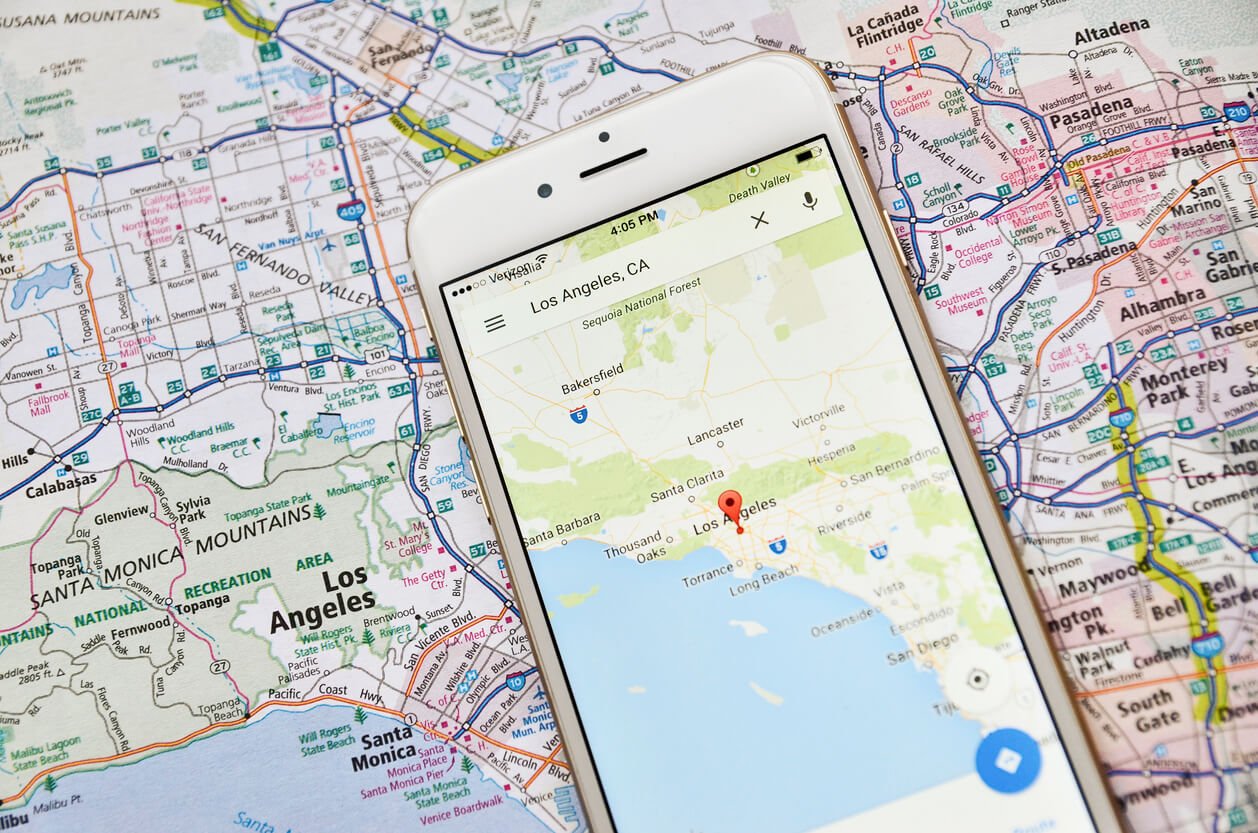2024 Guide to Finding the Best CRM For Your Small Business
How many sales have you had that were almost closed before falling through at the last moment?
Even 10 such cases annually would be unfortunate, but anything beyond that is absolutely tragic no matter the size of your business.
A smart, efficient customer relationship management (CRM) tool is key to eliminating missed sales opportunities. It will help you capture more leads while making it easier to manage customer data and interactions.
The question is, given the large number of CRMs available on the market today, how do you decide which one is best for your business?
In this comprehensive guide, we explain in detail what a CRM is, explore its essential features and key benefits, and give you our choice of best CRMs for small businesses.
What is a small business CRM platform?
A customer relationship management system is an online software that helps you manage your interactions with customers effectively and cultivate stronger relationships with them.
A small business CRM is tailored to meet the unique needs and challenges of smaller establishments, compared to mid or large-sized enterprises.
All CRM platforms act as centralized hubs for collecting, organizing, and analyzing customer data from various sources, including personal information, purchase history, and behavior patterns.
By providing a comprehensive view of each customer, CRMs help small businesses create personalized engagement, tailor their marketing efforts, and anticipate customer needs.
Ultimately, it’s a technology that leads to a better customer experience, satisfaction, and loyalty.
Why do growing businesses need to use a CRM platform?
The key to building strong relationships with customers is always being at the top of their minds.
If you run a lawn mowing business, for instance, your business should be the first thing on their mind as soon as they see the grass on their lawn growing wild. Even if your service is better than others, a customer who doesn’t remember you will find another company to mow their lawn.
That’s why building strong customer relationships is crucial for small businesses.
As your business grows, you'll face an influx of customers and their accompanying data and interactions. Without a proper system in place, it’s challenging to manage and maintain personalized relationships.
A CRM centralizes all customer information, providing a 360-degree view of each customer and enabling you to track every interaction, from initial contact to post-purchase follow-up.
It ensures no potential sale slips through the cracks.
Growing businesses need an efficient CRM system because it leads to:
- Enhanced Customer Satisfaction: A deeper understanding of customer needs and preferences helps you meet and exceed your customers’ needs.
- Empowered Sales Teams: Comprehensive insights into each customer allow teams to customize their approach and close deals more effectively.
- Improved Productivity: CRM platforms automate tasks, eliminate duplicate efforts, and provide a structured framework for managing leads, contacts, and deals.
- Valuable Data Insights: Businesses can identify growth opportunities by analyzing customer interactions. This helps optimize marketing strategies and allocate resources more efficiently.
By implementing a CRM system, small businesses can overcome the limitations of traditional methods like spreadsheets, which become inefficient as your business scales.
A CRM grows with your business, providing new features as you need them and allowing you to make the most of your limited resources.
10 Key Features You Must Look for in Small Business CRMs
When evaluating CRM solutions for your small business, prioritize features that align with your specific needs and goals.
Here are 10 key features to consider:
- Contact and Lead Management: Your chosen software must allow you to efficiently organize and track your customer contacts, potential leads, and interactions. Check if the CRM software has a contacts limit.
- Sales and Opportunity Management: Look for a CRM with built-in sales functionalities. Some might only have them in more costly plans.
- Workflow Automation: Modern CRMs use AI processes to automate the entire deal flow. They’ll read client data from emails and generate detailed performance analysis reports — without you lifting a finger! Choose a CRM that can automate most client management processes, be it data entry, appointment scheduling, or email notifications.
- Customization: A dynamic CRM will let you customize it according to your company's needs, including the ability to display or hide data on demand and handle a growing number of client accounts. It’ll be a huge problem down the road if it can’t scale.
- Reporting and Analytics: Your CRM must make reporting a breeze. It should offer detailed analytics on sales performance, customer behavior, and employee productivity. These insights will help you decide what sales tactics to use and create sales forecasts.
- Email and Communication Integration: While this might be taken for granted, it’s worth checking if your CRM can integrate with your email provider and other communication tools.
- Employee Tracking: The CRM should allow you to keep track of all the accounts a particular employee is handling. It’s even better if it can also generate individual performance reports.
- User Access Control: Look for CRMs that offer role-based access controls that allow you to manage who can view and edit different types of information.
- Mobile Access: In a mobile-first world, having a CRM with a robust mobile app can give you an edge with on-the-go access to customer information.
- Integration Capabilities: Your small business CRM must suit all of your functions. Check if it integrates with other tools your business uses, such as marketing automation platforms, accounting software, and customer service tools.
NiceJob Easily Integrates With Your Tools!
NiceJob integrates directly with popular field service management software, estimating tools, and CRMs to automate review generation, referral collection and more!
Go to The App Marketplace
The 6 Best Small Business CRM Software Solutions
Let's now explore the best CRM software for small businesses. Each of these platforms has unique features and benefits that make it stand out in the market.
1. HubSpot
 HubSpot is a reputed CRM provider that offers an all-in-one solution for small businesses. It combines contact management, sales workflow automation, marketing automation, and customer service tools.
HubSpot is a reputed CRM provider that offers an all-in-one solution for small businesses. It combines contact management, sales workflow automation, marketing automation, and customer service tools.
It's a comprehensive and scalable platform ideal for small businesses seeking to streamline their operations.
HubSpot CRM is free, which is a huge advantage for resource-strapped small businesses. You do require a paid plan, however, to access advanced CRM features and scalability.
- The HubSpot Professional plan starts at $800 per month and includes software for automation, reporting, and campaigns.
- The Enterprise plan starts at $3,600 per month and offers the most powerful marketing automation software for advanced control and flexibility.
HubSpot is an industry leader but pricier than many other CRM software available today.
Learn more about the NiceJob HubSpot integration.
2. Zendesk
 Zendesk is a CRM solution for ticketing, live chat and messaging, help center, voice support, and AI-powered services.
Zendesk is a CRM solution for ticketing, live chat and messaging, help center, voice support, and AI-powered services.
It stands out as a unique solution for small business owners due to its user-friendly interface, extensive customization options, and scalability.
Zendesk’s intuitive design simplifies customer support management, streamlines communication channels, and enhances efficiency.
It offers a wide range of plans, including:
- Suite Team starts at $55/agent/month. It offers a ticketing system, email, chat, voice, social messaging, help center, AI agents, and more.
- Suite Growth, priced at $89/agent/month, has added features like multiple ticket forms, light agents, SLAs, CSAT, and multilingual support.
- Suite Professional, at $105/agent/month, includes custom analytics, side conversations, skills-based routing, and more.
You’ll need to contact the Zendesk sales team for pricing on the Suite Enterprise plan, which offers tailored solutions.
Zendesk provides a free trial and demo for first-time users.
Learn more about the NiceJob Zendesk integration.
3. Zoho CRM
 Zoho CRM is known for its user-friendly interface and comprehensive functionalities at a competitive price point. This makes it a great choice for small businesses.
Zoho CRM is known for its user-friendly interface and comprehensive functionalities at a competitive price point. This makes it a great choice for small businesses.
It offers professional-grade tools that can help improve customer acquisition and accelerate growth. With a minimal learning curve, Zoho lets you hit the ground running.
Zoho CRM offers multiple plans:
- The Standard plan starts at $14 per user per month (billed annually) and provides a suite of basic features, including sales forecasting, multiple sales pipelines, lead scoring, workflows, and more.
- The Professional plan, priced at $23 per user per month, gives you inventory management, CPQ, scheduled mass emails, Google Ads integration, real-time customer interaction, and more.
- The Enterprise plan — the most popular choice — is available at $40 per user per month. It adds deep AI and powerful features.
- Finally, the Ultimate plan, priced at $52 per user per month, provides extended AI and customization, data preparation, and storytelling for comprehensive business insights.
Zoho offers a 14-day free plan for each price point.
4. Freshworks
 Freshworks is a CRM solution that simplifies the sales process, making it easy for small businesses.
Freshworks is a CRM solution that simplifies the sales process, making it easy for small businesses.
With this comprehensive platform, sales and marketing teams no longer have to juggle multiple tools to manage various aspects of the sales cycle.
Freshsales CRM – one of Freshworks’ products – empowers sales reps to excel by helping discover the best leads, complete drive, and nurture existing customers.
By centralizing essential sales functions in one tool, Freshsales CRM eliminates the need for multiple applications.
With email and chat integration, AI-powered deal management, mobile CRM, and more, Freshsales is a solid option that stands out from the crowd.
Freshsales CRM offers different pricing plans:
- The Growth plan, priced at $9 per user per month (billed annually), offers powerful CRM automation.
- The Pro plan, at $39 per user per month, provides additional features such as multiple sales pipelines, AI insights, and sales teams and territory management.
The Enterprise plan, priced at $59 per user per month, offers advanced customization, AI forecasting, and audit logs.
5. Monday
 Monday is a great CRM solution that is simple to set up and easy to use.
Monday is a great CRM solution that is simple to set up and easy to use.
Its robust features, user-friendly interface, and third-party integrations allow businesses to efficiently manage leads, contacts, and deals.
Monday is flexible, providing customized CRM solutions for a wide range of industries.
Its affordable pricing plans include:
- The Basic CRM plan starts at $12 per seat per month and offers unlimited customizable pipelines, unlimited contacts, templates, and mobile apps.
- The Standard CRM plan is priced at $17 per seat per month. It includes advanced account and contact management, an AI email generator, quotes and invoices, and custom CRM integration and automation.
The Pro CRM plan, at $28 per seat per month, provides sales forecasting and analytics, mass email tracking, extensive automation, and integration capabilities.
6. Capsule
 Capsule helps small businesses boost sales and become more organized. It includes contact management, sales pipeline, workflow automation, email marketing, calendar, and analytics—all the good stuff you need to get started!
Capsule helps small businesses boost sales and become more organized. It includes contact management, sales pipeline, workflow automation, email marketing, calendar, and analytics—all the good stuff you need to get started!
Pricing plans include:
- The Starter plan, at $18 per user per month, includes 30,000 contacts, email templates, basic reporting, and premium integrations with popular platforms.
- The Growth plan, at $36 per user per month, offers 60,000 contacts, multiple sales pipelines, workflow automation, project management, advanced sales reporting, and user roles and restrictions.
- The Advanced plan, at $54 per user per month, offers 120,000 contacts and helps find up-to-date contact and account information for better targeting.
- The Ultimate plan, at $54 per user per month, offers 240,000 contacts, a dedicated account manager, custom training, and ongoing priority support.
All plans offer a 14-day free CRM software trial.
How To Choose the Right CRM for Your Small Business
As a small business owner, you must be clear about the objectives you set for your CRM. Consult your teams about what they would ideally want from a CRM. This will help you understand your company's operational gaps.
Once you have a list of everything you want, research the specific CRMs that match your needs. You can do this by getting referrals from other businesses, reading trade magazines, and checking out customer reviews.
Once you have narrowed down a shortlist, we recommend taking advantage of demos and free trials offered by different providers before making a final choice.
This will allow you to explore the features and functionalities of each CRM software, feel whether it’s easy to use, and decide if they align with your business requirements.
Pay special attention to each product’s pricing plans to get the best value for your money.
Customer Relationships Beyond CRMs
The ultimate goal of using a CRM isn’t just managing customer data. It’s to build lasting connections that drive business results.
A great CRM helps by empowering you to engage with your customers more effectively, anticipate their needs, and deliver personalized experiences that set you apart from the competition.
Your relationship with customers is at the core of cultivating a positive online reputation. NiceJob helps you leverage satisfied customers to generate more reviews and referrals and amplify your brand's reach and credibility.
NiceJob is #1 For Reputation Marketing
Our customers have rated us the top software for small businesses in the following categories:
-Best results
-Easiest to implement
-Easiest to use
-Best customer service

FAQs
How do CRMs handle customer data?
CRM systems handle customer data by securely storing and organizing it within a central database. They employ robust security measures and adhere to CRM data protection regulations to ensure the privacy and integrity of customer information.
What's the best free CRM for small businesses?
Several CRM options, including HubSpot CRM, Zoho CRM, and Capsule CRM, offer free plans tailored for small businesses. Each platform provides valuable features that can be utilized without incurring additional costs. You’ll need to make a choice based on your specific needs and business goals.
Is CRM software suitable for small businesses?
Yes, CRM software is highly beneficial for small businesses. It helps optimize customer interactions, streamline sales and business processes, and improve overall efficiency. Small businesses can incorporate CRM solutions to enhance customer satisfaction and improve sales with data-driven decisions.
What is the most commonly used CRM?
There are several widely used CRM systems, including Salesforce, HubSpot CRM, Zoho CRM, and Microsoft Dynamics 365. The choice of the most commonly used CRM may vary depending on the industry and business size.
How much does CRM cost for small businesses?
CRM costs for small businesses vary depending on the platform, features, and scalability requirements. Some CRM solutions offer free plans or affordable pricing tiers, while others have more comprehensive and customizable options with higher price points. Make sure to assess your business needs and budget to make the right selection.
How long does it take to implement a CRM system?
The implementation time can vary widely depending on the complexity of the CRM, the size of your business, and how much customization is needed. Basic setups can be done in a few days, while more complex implementations might take several weeks or even months.
Can I migrate data from my existing system to a new CRM?
Most CRM providers offer data migration tools or services to help you transfer data from your existing systems. The ease and accuracy of data migration can vary, however, so it's important to discuss this with potential CRM providers before making a decision.




